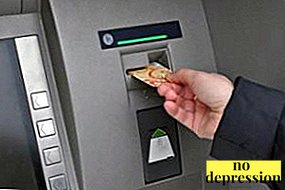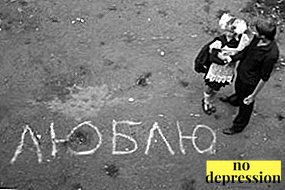In a period of protracted economic crisis, even fairly wealthy people have to think about how to learn to save money — inflation and a high dollar rate simply leave no other choice. If in the usual time you are used to not counting your daily expenses, then recently you may have noticed that you still have a week to live until your salary and the money is running out.
How to start saving money and save it, including during a crisis? Let's try to figure it out.
The content of the article:
Ways to save the family budget
General recommendations for saving money
Psychologist's comment
9 ways to save the family budget
Many people have long cherished every ruble, because otherwise it is not possible to save enough money for any major purchase.
 So, how to learn to save, not limiting yourself much? Try changing your habits a bit and you can save up to 30% of your regular budget.
So, how to learn to save, not limiting yourself much? Try changing your habits a bit and you can save up to 30% of your regular budget.
We suggest you start using the following 9 ways to save money in practice. For each method, the minimum amount that can be saved.
- Install in your home electricity meters, hot and cold water, gas meter. So you will pay only for the amount of resources that you consume, and not the average statistical rate, which can be several times more than what is needed by one person or a married couple (this method does not suit large families). Savings - about 500 rubles per month.
- Do not leave the computer or laptop in sleep mode - so it still consumes electricity. When finished, unplug the appliance. This rule applies to computer equipment, air conditioners, televisions and other electrical appliances, except for the refrigerator. Savings - about 300 rubles per month.
- Do not purchase perishable food for the future (dairy products, fruits and vegetables, bread). Every month we throw away spoiled food. If you buy the right products every day, going to the nearest store after work, they will not spoil in anticipation of their time in the refrigerator. Savings - about 500 rubles per month.
- Order the details of your mobile expenses (you can do this on the website of your operator or in any salon of communication), analyze what you spend the most money on. Disable paid services that do not bring you benefits. If there are alternative, more economical rates, go to them. Savings - 300 rubles.
- Connect the package of services from one provider: cable TV and the Internet in the complex are much cheaper. Choose the average fare at a cost - to save, you can watch smaller channels. Savings - about 200 rubles.
- Cook homemade food. It is much more useful and cheaper than a restaurant or a delivery service. Of course, you should not shut up at home completely, but you should also dine for 1,000 rubles all the time. In addition, do not buy ready-made food and semi-finished products - they are more expensive than cooked at home. Savings - from 1000 rubles and more.
- Buy new clothes at the end of the season, during sales. So you can not save on the quality of things, just buy your favorite brands, but with big discounts. Savings - from 1000 rubles and more.
-
 Before going to the store, eat tight and make a list of necessary products and things. This precaution will help you avoid spontaneous purchases. Savings - about 1000 rubles per month.
Before going to the store, eat tight and make a list of necessary products and things. This precaution will help you avoid spontaneous purchases. Savings - about 1000 rubles per month. - Use the power of the Internet. Today there are thousands of online stores that offer quality items and household appliances at low prices. They do not spend on rent, so they can afford it without affecting the quality of the goods. Savings - about 1000 rubles per month.
- Buy domestic cosmetics and household chemicals. It has long been proven that most expensive cosmetics have a composition identical to the composition of inexpensive products. Often, Russian cosmetics even wins: there are many brands that produce products with natural natural extracts and without too much chemistry. Savings - 500 rubles per month.
If we calculate the total approximate savings, then the minimum amount that these 10 methods will allow you to save in a month will be about 6300 rubles. Not bad, is it? This amount can be just set aside to save up for a fur coat or a new phone.
General recommendations for managing money
- Plan your budget. Every month or every week (depending on the frequency of income), paint your income and expenses in a notebook or computer program. Divide your salary into several parts: utilities and communication services, money for food, money for clothes, cosmetics and household chemicals, money for transport, etc. Save 10% of your income, even if it is a very small amount. This will allow you to create a safety cushion in case of lack of money or to save up for a large purchase of the desired thing. Savings will be huge! You will be able to calculate your funds in advance and you will never find yourself in a situation when you are short of food.
- Try not to borrow money, refuse loans. As they say, we take someone else's, and give - his own. Yes, and with predatory interest. The credit system is based on the fact that interest sometimes exceeds the original amount of debt.
- Do not carry large sums of money with you - you will definitely want to spend them. Leave no more than 1000 rubles in your wallet, it will help you not to be tempted.
-
 Keep your money on the card and do not cash out large amounts for the future. This will allow you to spend money more economically: when money doesn’t “enrich” the eyes, there is no temptation to spend it.
Keep your money on the card and do not cash out large amounts for the future. This will allow you to spend money more economically: when money doesn’t “enrich” the eyes, there is no temptation to spend it. - Use discount cards when you go to buy clothes, equipment or other expensive goods. If you do not have a card in the store where you want to make a purchase, ask around your friends and colleagues - someone will definitely find the desired discount card.
If you have financial difficulties, it is not necessary to cut spending on recreation and entertainment - without this, life will become bland. It will be enough to use these recommendations, and you will be able to survive the crisis period without losses.
Natalia, Moscow

 Before going to the store, eat tight and make a list of necessary products and things. This precaution will help you avoid spontaneous purchases. Savings - about 1000 rubles per month.
Before going to the store, eat tight and make a list of necessary products and things. This precaution will help you avoid spontaneous purchases. Savings - about 1000 rubles per month. Keep your money on the card and do not cash out large amounts for the future. This will allow you to spend money more economically: when money doesn’t “enrich” the eyes, there is no temptation to spend it.
Keep your money on the card and do not cash out large amounts for the future. This will allow you to spend money more economically: when money doesn’t “enrich” the eyes, there is no temptation to spend it.

